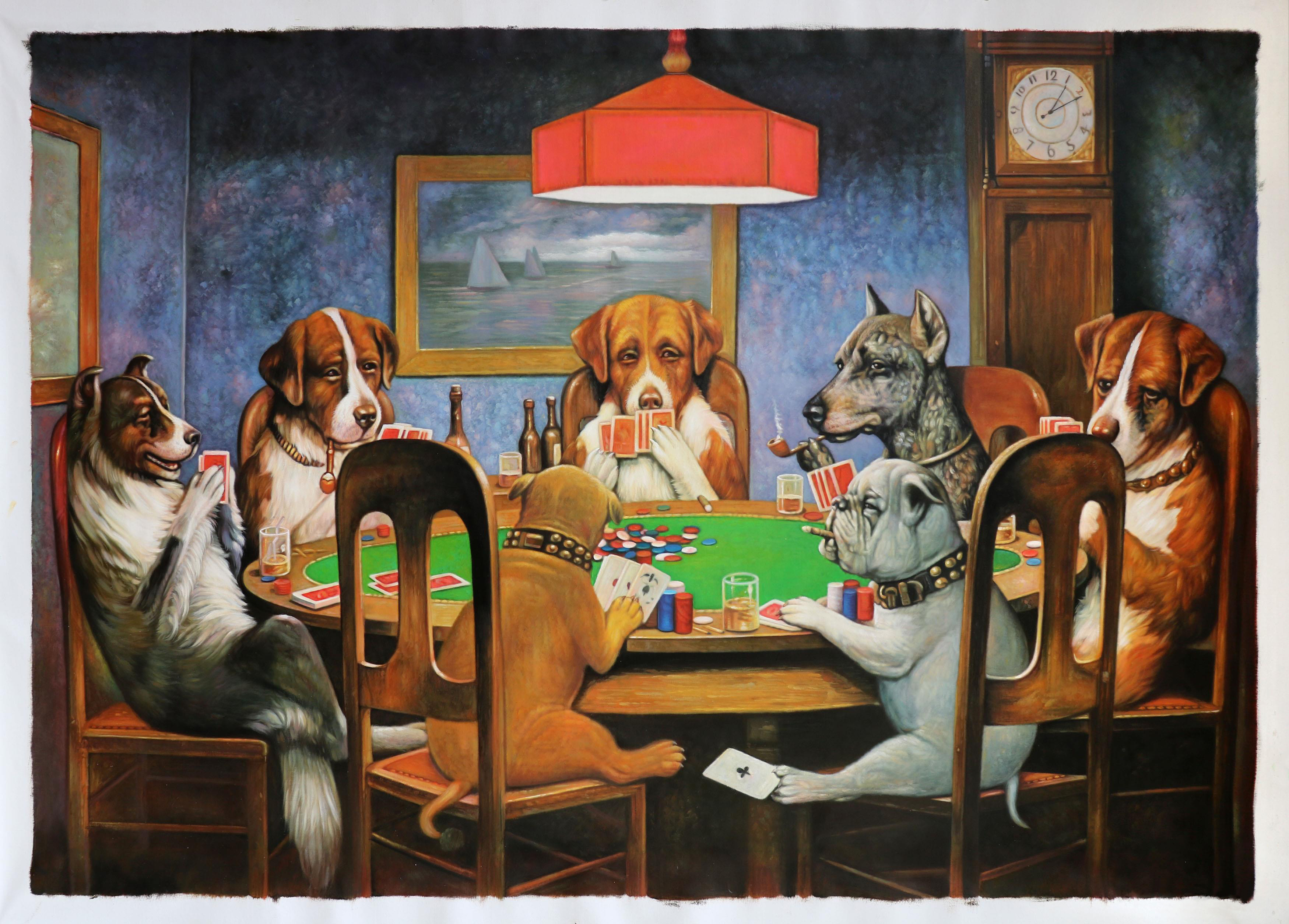Ultimate Kitsch: Dogs Playing Poker
General MLA Format
General Format for MLA Style
Books:
- Author's Last Name, First Name. Title of Book: Subtitle if Any. Publisher, Year.
- Author's Last Name, First Name. "Title of Chapter, Short Story, or Essay." In Title of Book: Subtitle if Any. Edition if given and is not first edition, edited by Editor's First Name Last Name, Page Range of Chapter or Part. Place of publication: Publisher, Year.
Articles:
- Author's Last Name, First Name. "Title of Article." Name of Journal, Volume Number, Issue Number, Date of Publication, pages. DOI or link.
Images/Art:
- Creator last name, First name. “Image Title.” or Description of image. Website Name, Day Month Year, URL.
- Helpful Sources→Scribbr MLA Quick Guide; Cornell Library Guide on Citation Styles
Citing Images
When you're writing about an image or multimedia piece in a paper or presentation, you should provide the following pieces of information in the caption and in the bibliography...if you have a list of works of art cited:
- creator(s)
- title
- year(s) of creation
- materials or format
- current owner (such as a museum or private owner), if applicable
- address of the Web site where you found it if you did not see it in person
Refer to Chicago Manual Style 17th ed. 14.235: Citing paintings, photographs, and sculpture. It calls for: artist, title in italics, date of creation or completion, then medium and current location of the work. For works consulted online, add URL.
That's for the first time you mention it in the text; just the creator and title thereafter.
For MLA Citation Style, refer to examples provided in Modern Language Association of America. MLA Handbook. Ninth edition., The Modern Language Association of America, 2021. Appendix 2: Works-Cited-List, Entries by Format, pp 331-333. And online.
Cite sources accurately in order to use information ethically and responsibly
MLA Citation Style
Modern Language Association (MLA) Handbook (2022) recommended section: Works-Cited-List Entries by Publication Format
Purdue's OWL (Online Writing Lab) MLA Formatting and Style Guide
MLA Handbook by
Call Number: Online and print: Olin Library Reference (Non-Circulating) LB2369 .M52 2021ISBN: 9781603293532Publication Date: 2021-04-22
Quoting sources
 Please note that the MLA Handbook devotes a significant section to guidance on
Please note that the MLA Handbook devotes a significant section to guidance on
6.31–6.77: Quoting and Paraphrasing Sources
In addition to guidance, it gives examples of different types of quotations and how to integrate citations.
Managing Information
Use citation management/PDF organizing software to save time and energy when organizing and citing research materials.
The library has compiled a list of citation management tools, including Zotero and ZoteroBib. For advice choosing a citation manager or managing information, contact us for a consultation!
 Zotero is a free, open sourced, web-based tool for managing citation, organizing PDF's and creating bibliographies. It is a downloadable software program designed for humanities and social sciences research. The Library offers workshops to teach you how to use it. If there are no upcoming workshops, request a consultation using the link above.
Zotero is a free, open sourced, web-based tool for managing citation, organizing PDF's and creating bibliographies. It is a downloadable software program designed for humanities and social sciences research. The Library offers workshops to teach you how to use it. If there are no upcoming workshops, request a consultation using the link above.
ZoteroBib is a free, quick and easy online bibliography and citation maker that saves time and trouble. Add sources using the ZoteroBib search box. Then copy and paste the complete bibliography (or footnotes or in-text citations) into your paper in the citation style of your choice. (As great as ZoteroBib is, it isn't perfect. Check your citations carefully using citation style guides or ask a librarian for assistance.)

There are tools and there are tools

